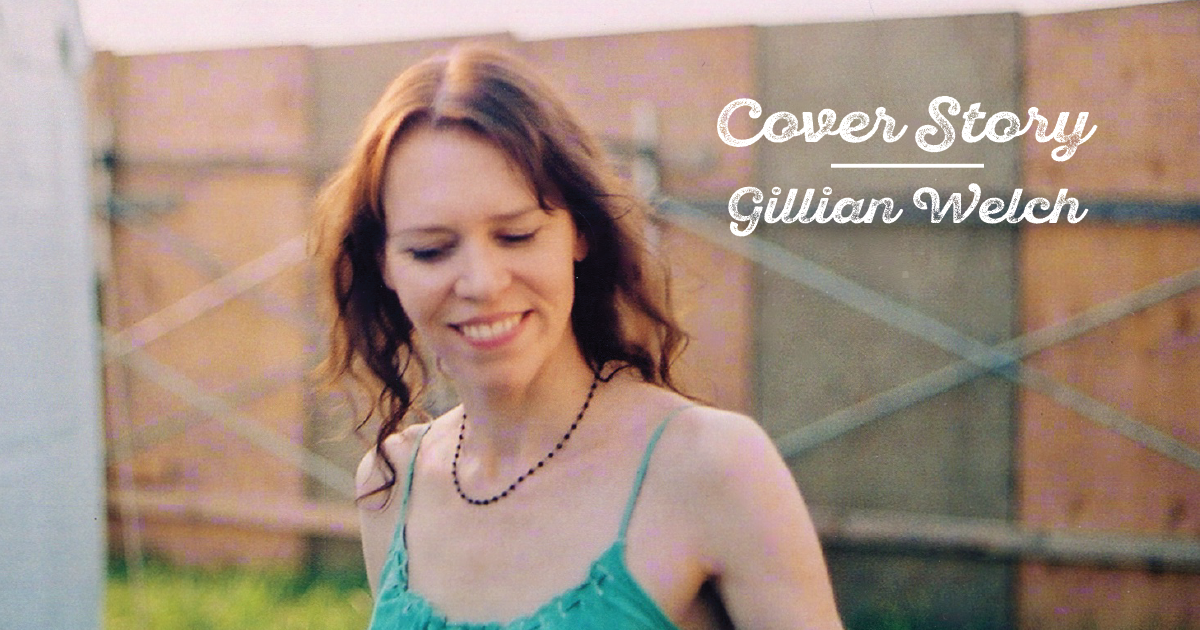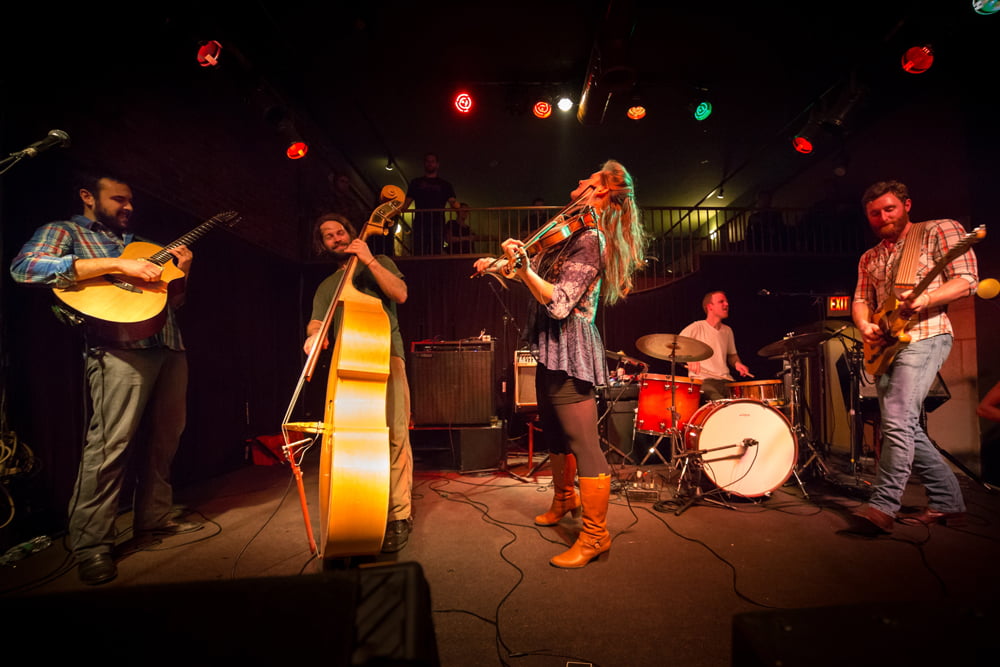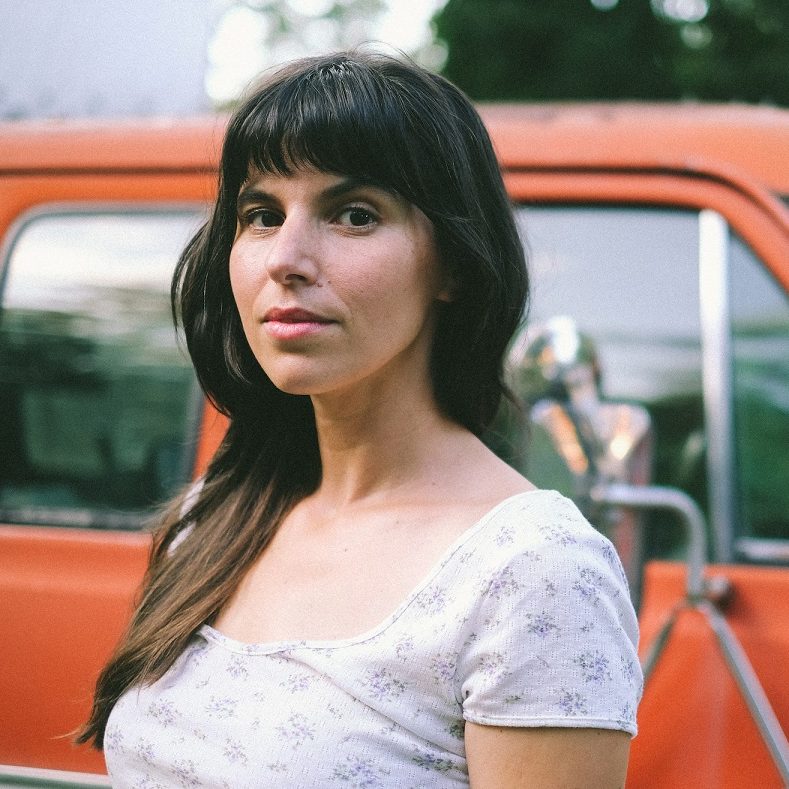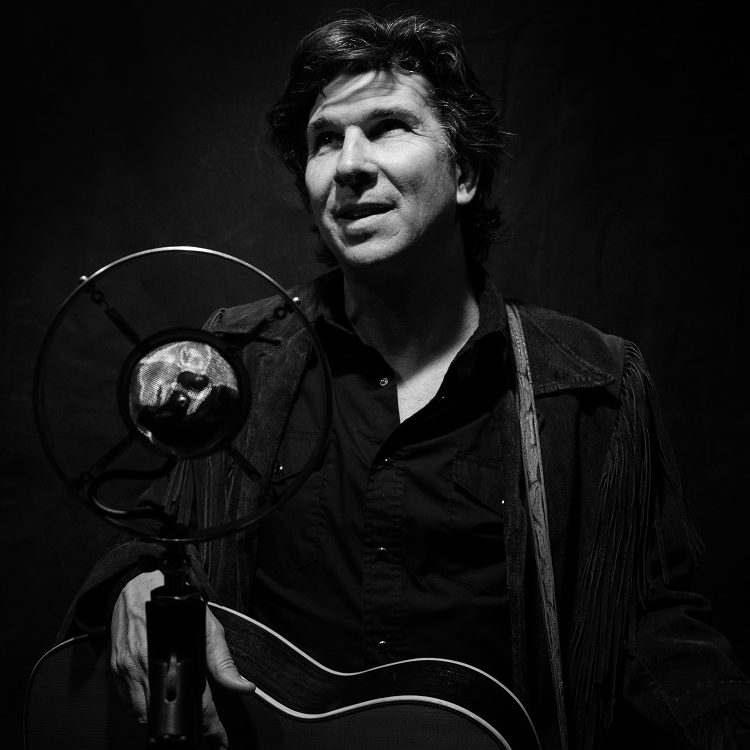Fans of Gillian Welch have been rewarded for their customary patience with an abundance of albums released in 2020. During the earliest days of the pandemic, Welch and her partner, David Rawlings, stayed in and recorded songs from a collection of old songbooks. (The result, All the Good Times, received a Grammy nomination for Best Folk Album last week.) And after literally rescuing an archive of tapes and instruments from a tornado in March — one that blew the roof off their East Nashville studio — the pair set to work on another major undertaking.
This time, the result is even more bountiful: Three albums, encompassing 48 rarely-heard songs written and recorded in 2002 to fulfill a publishing deal. Only a few compositions have seen the light of day, namely the recordings of Alison Krauss & Union Station’s “Wouldn’t Be So Bad,” Solomon Burke’s “Valley of Tears,” and I’m With Her’s “Hundred Miles.” The engaging, one-take performances remained tucked away until this year, but they’ll be compiled into a three-disc box set titled Boots No. 2: The Lost Songs in December, packaged with a book of photography and a songbook of their own. These unearthed tracks were recorded in between 2001’s Time (The Revelator) and 2003’s Soul Journey; meanwhile, Boots No. 1 was an equally satisfying 2016 collection of outtakes from her 1996 debut album, Revival.
BGS caught up with Gillian Welch by phone.
Welch: Not really, let’s see. They’re pushing 20 years old – they’re 18 years old. I’d say… twice? So, close to once a decade? What would happen is, somebody or an artist that we knew would come to us, asking if we had any songs nobody had heard. Did we have any unreleased songs? One time, Buddy Miller called us up, and I love Buddy. He’s a friend. And he said, “You guys don’t have any country R&B songs, do you?” And I said, “Funnily enough, we’ve got a couple of these that we just didn’t know what to do with.” And he said, “Well, I’m making a record on Solomon Burke!” So, that’s how Solomon came to record “Valley of Tears.”
And same, Alison Krauss heard “Wouldn’t Be So Bad” the day I turned in all these songs to the publishing company. My manager hadn’t even heard them, and my publisher was playing them for my manager, who also managed Alison. They weren’t even pitching her “Wouldn’t Be So Bad.” She was in there to listen to other people’s songs and she heard it through the wall, is what I heard, and came in and said, “What’s that one? It’s awful, that’s just pitiful, I want that one!” [Laughs] So, that’s pretty much how it went. And same thing with I’m With Her. They were looking for some tunes. But truly, man, that’s about it.
How were these recordings made? Did you record them originally on reel-to-reel?
Yeah, they’re on quarter-inch reel-to-reel. They were recorded on a portable Nagra. The old field recordings, when they would take tape machines out to people’s farms and record folk songs and whatnot, these were often the machines they were hauling around. They run on batteries. Just lovely tape machines. So, we had a Nagra at the house and I was singing into a SM57 duct-taped to a guitar stand. [Laughs] My guitar and vocal are going into one microphone. It was very, very minimal, because we didn’t think we were making records, honestly. We weren’t. That’s one of the things that sets this collection apart from our records, is these weren’t records! None of that self-awareness, or self-consciousness, was present. These songs were written in a marathon long weekend and each song was recorded a minute after it was done.
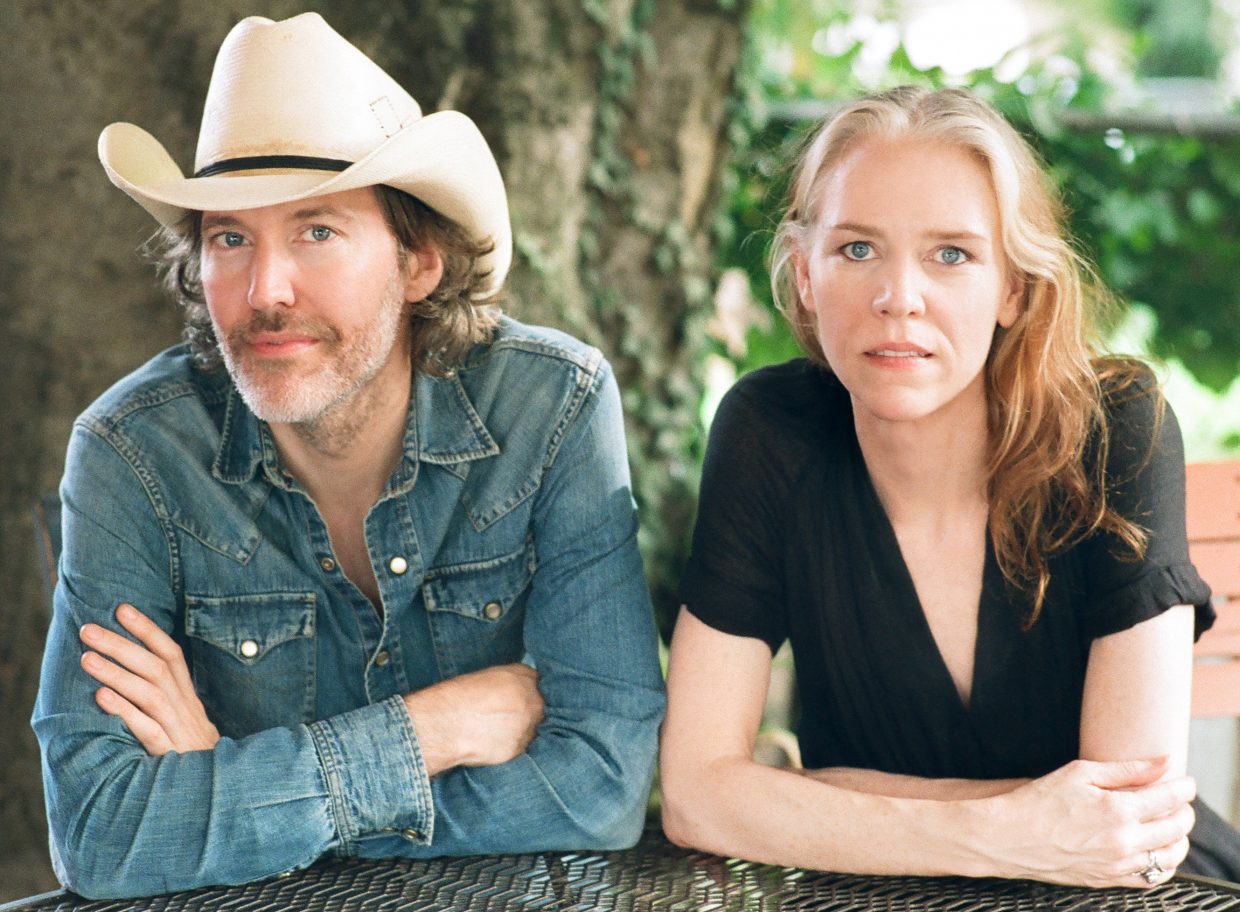
All 48 songs were written in a weekend?!
Yes. The ideas, they had languished, unfinished, in writing notebooks. They’d been kicking around. It wasn’t like I had thought of all these things in a weekend. But, I had shortfall with my publishing deal. As we started putting out records and we started touring… I don’t write on the road. So I fell behind. It was like I was never going to be done with it. My life had changed so much, that particular deal had kind of run its course. I didn’t know what to do.
Dave was the one who had the courageous and crazy idea. He was like, “What if we just turn in all the songs?” I sort of laughed, like, “Really? 48 songs?” [Laughs] He was like, “Yeah,” and he started pulling out the old notebooks. I write in spiral-bound, college-ruled notebooks, and there were just stacks of them around. He started pulling them out and we would look for a song that had just never gotten finished.
And he said, “Whatever the song needs, to make it a song, here we go. Right now.” We’re going to do it. He would put this sheet in front of me, and I would try and finish it, and he would go try to find another. And as soon as he came back in, I was supposed to have finished the one he had handed me previously. Then we would turn the tape machine and sing it once, and then that was that. Then we would finish another one. So, yeah, all of these recordings are first vocal takes of me. And I hear it. There’s an off-the-cuff-ness.
As you were recording these songs, were you in chairs facing each other?
I was on the couch! [Laughs] It’s a funny thing, releasing these into the world. It’s strange timing, to have rescued them from a tornado, and to be confronted with them again after all these years. And to literally think, “Why are we saving these?” It was really shocking. You keep things like this, maybe notebooks or photographs or tapes, and you think, “Well, maybe I’ll do something with them someday…” Here’s the sudden realization that they may not always be available to you. A tornado could come along and pulverize the entire thing.
Now, when you say you saved them from a tornado, that’s quite literal.
Oh yeah! That is completely literal. I picked them up in my arms and ran them through a collapsing building, so yes, it is completely literal! In the dark, in cascading water and debris. We physically saved every one of our masters, and every one of our guitars and microphones and gear. … I don’t want to go through that again. It’s the closest window I’ve had to what people go through in extreme duress and trauma. It was really something. That was how our year started out.
As I was looking through some of your press materials, I saw a photograph of you – and the photographer was you. Are you interested in photography? Is that something you’ve taken up?
Yeah, actually, that’s what my degree is in. I have a Bachelor of Arts in photography that I got and promptly made no use of. But I have it! Funny enough, now that we all walk around with cameras on our person, in the form of a phone, at all times, I take more photographs these days than I have since I was an undergrad, you know? I think you’re referring to this record of folk songs that Dave and I made during lockdown, and they said, “Well, we need a picture.” [Laughs] So I took a picture of myself and I took a picture of Dave threading tape on the tape machine that lives in our bookcase.
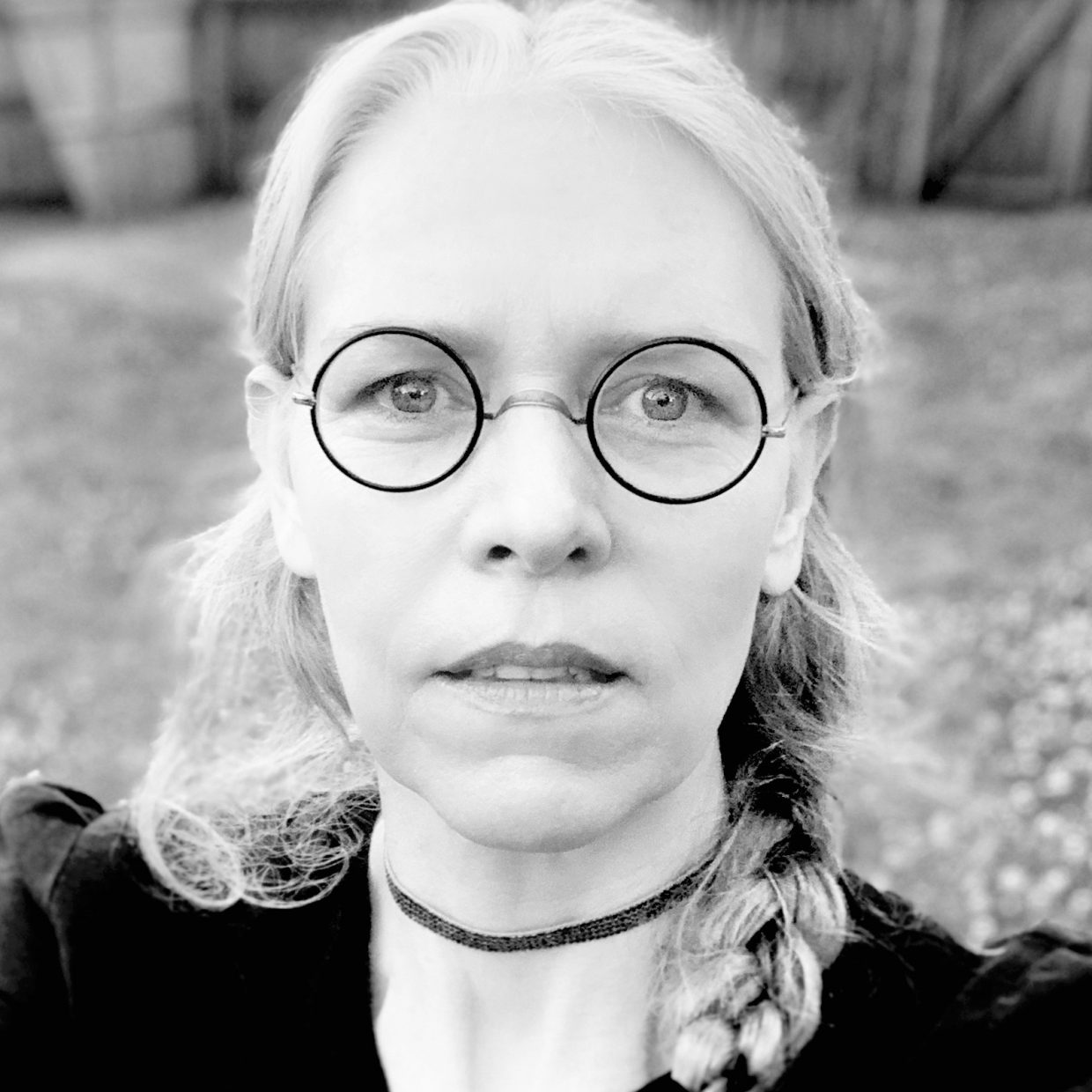
I’ve been reading about people who have started to play banjo during the pandemic, to cheer themselves up. Has that been the case for you?
I’ve heard that too! It’s so interesting to see how people are dealing with this, and apparently guitar sales and banjo sales are way up. It’s heartening. Who would have seen that coming? People are learning to play instruments, or returning to ones that have been in the closet for many years, and it’s really a wonderful reaction. We all find our own ways. And for Dave and I, it’s been pulling out all these old folk songs book, flipping them open to a page, and singing all these folk songs. Somehow, that’s been our reaction.
How old are the books?
They’re anywhere from a hundred years old, to fifty years old, forty years old… You know, I like these folk songbooks. I started singing folk songs when I was very young and I came at them not from records, but from this tradition of songbooks and being taught them by teachers and other people. It was not a recorded medium, at first, for me. Strangely, though it sounds incredibly old-timey, it was an oral tradition. …
So, we’re just returning to it. It’s the only thing that made sense to me in April and May of this year, was to sing these songs that touched upon other songs of great upheaval and tragedy and loss. And yet, people came through it, right? It doesn’t matter how dark or tragic the material is. The fact that the song exists tells me that people made it through. That’s part of the great power of folk music. And I use folk as a really, really big word, to cover almost everything! [Laughs] As someone once said, “Folk music is just music sung by folks.”
If I have my timing right, these recordings were made between the O Brother, Where Are Thou soundtrack and Soul Journey. Looking back on that time in your career, there must have been so much happening, and so many commitments you had to honor. Where do you draw strength from, when you start to feel overwhelmed?
Well, that’s an interesting question. When I really start to get overwhelmed, and it has definitely happened this year… It’s been such a challenge to remember who we are, in the face of being separated so much from what we normally do, you know? It’s hard to remember who we are! And I found myself really, in my most dislocated moments, putting on the records that I love. And honestly, this is going to sound kind of crazy, but I’ve heard it from other people, too, who have been putting on our music. Almost to fill the social gaps, to have another person inhabit your home, right? And I did that also. Because I’ve seen no one but Dave, really, and I found myself putting on records and almost communing with them like friends.
I see that there’s a box set coming on vinyl and CD, and there’s a songbook, and a lot of photos. It seems like all of your passions are channeled into one big project.
You know, it was really fun to make that book, that photo-music-lyric book that is a companion to the box set. I’ve never made a book before and it was a really interesting intersection of everything I’ve ever done, with all the photography. I’d say it’s about half [composed of] found photographs, and some photographs of mine, and some photographs of Dave. As it turned out, I realized doing this, there aren’t that many pictures of Dave and I from back then. We didn’t just always have a camera. There are so many pictures to document more current times, but we did find some.
When you listen now to this collection of songs, what kinds of emotions does it bring out in you?
When I listen to them, I think about the craft of songwriting. I think that there’s almost a humbleness to them. There’s not very much ego in them, because I wasn’t writing them to be “recorded by the recording artist Gillian Welch.” I was just trying to have them be songs, and we were so focused on their song-ness. And now 20 years later, I like that about them. We just put things that we were thinking about, and things that we were seeing.
Like in “Back Turn and Swing,” Dave is from New England, and every summer up there, you can’t sit down to a meal where there’s corn on the cob without a protracted discussion about past years’ corn, and how this corn rates against the other years’ corn. It’s funny, it’s hilarious! You just talk about different years of corn! So, I like that that made it in. I like it when these little things that we notice as we go through the world make it into the songs, and this collection has a lot of that. There are a lot of little moments in there.
I’m glad it exists, and it wouldn’t have existed — all of these things would have stayed in the notebook — if it weren’t for having to satisfy my publishing deal! So, I certainly had no hard feelings about any of it. It’s amazing that we did this, and given the timing of everything, I can’t believe in the year of 2020, with all this upheaval and pain and loss and isolation, that we had all of these songs sitting in a box, to say to people, “Here you go.” We rescued them. They are lost no more.
Photo credit (lead): David Rawlings; Photo credit (pair): Henry Diltz; Photo credit (middle): Gillian Welch
